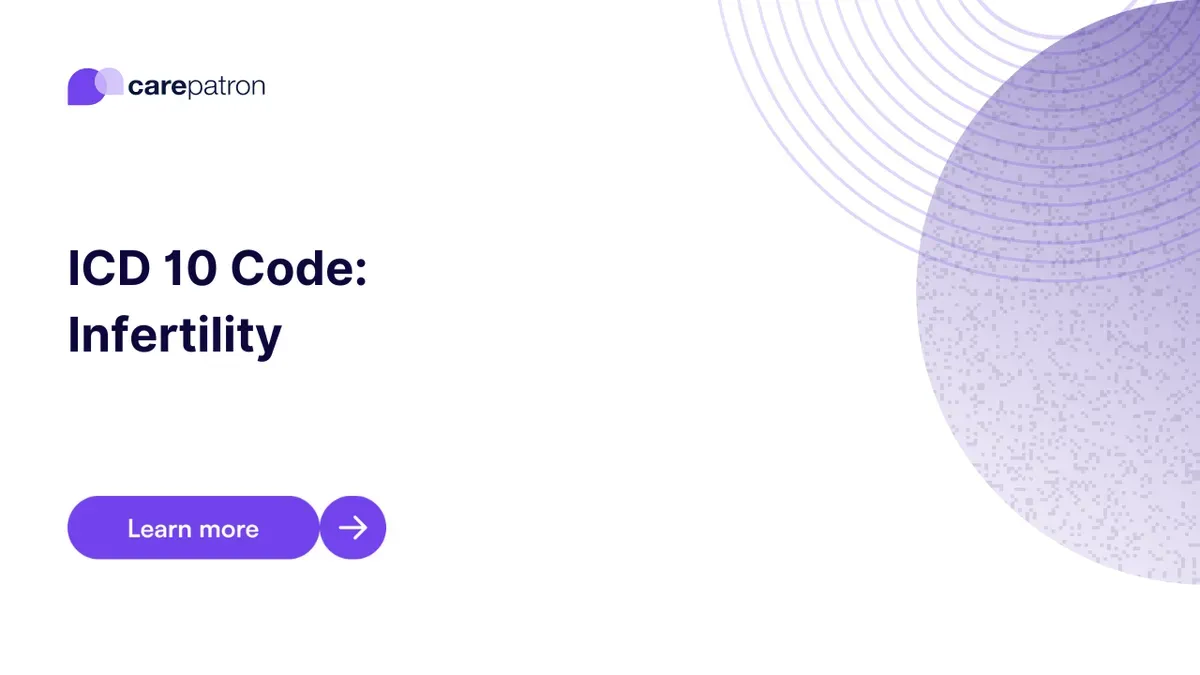
Infertility ICD-10-CM Codes
Uncover the 2023 guide on Infertility ICD-10-CM codes. Learn about the specific codes, clinical descriptions, and billing implications.
Use Code
Commonly asked questions
Common causes of infertility in women include hormonal imbalances, polycystic ovary syndrome (PCOS), and structural issues like blocked fallopian tubes.
Diagnosis of male infertility usually involves a semen analysis to evaluate sperm count, motility, morphology, and other tests to rule out underlying conditions.
Treatment options for infertility may include medications to stimulate ovulation, intrauterine insemination (IUI), in vitro fertilization (IVF), and, in some cases, surgical procedures to correct anatomical issues.
EHR and practice management software
Get started for free
*No credit card required
Free
$0/usd
Unlimited clients
Telehealth
1GB of storage
Client portal text
Automated billing and online payments
